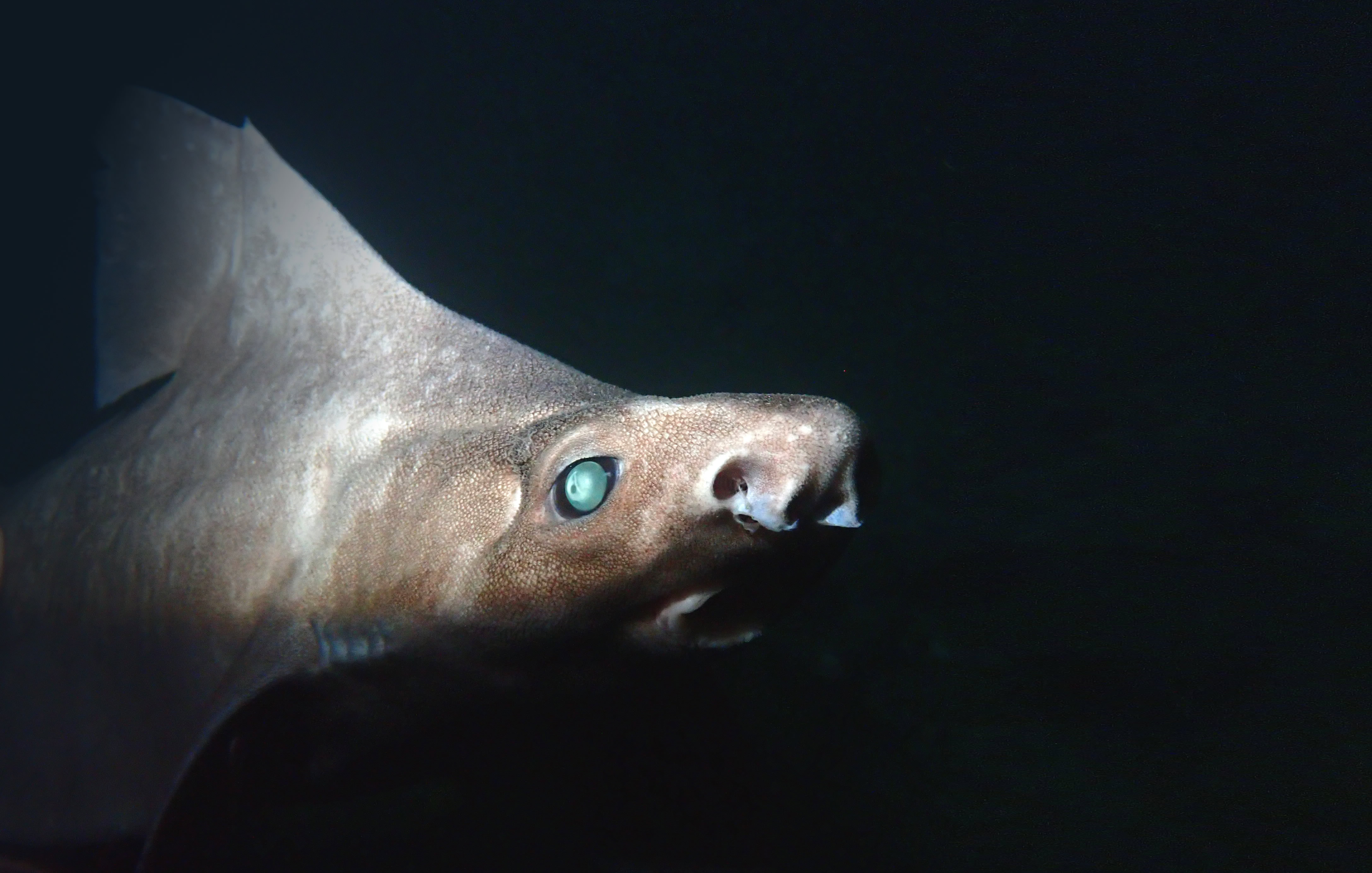
Angular roughshark (Oxynotus centrina). ©Andrej Gajić, Sharklab ADRIA.
A rare, pale, ‘ghost’ shark has been discovered in the deep waters of Albania. The critically endangered angular roughshark, Oxynotus centrina, is the first of its species to be found with leucism, an abnormal condition of reduced pigmentation characterised by overall pale colour or patches of reduced colouring. Contrary to albinism, where there is a complete lack of melanin and the iris is red due to underlying blood vessels, leucistic animals retain normal eye pigmentation.
Angular roughsharks are native to the outer shelves and upper slopes of the eastern Atlantic Ocean, reaching depths of up to 1,300 metres. The ghostly shark was recently brought to the surface by a commercial trawler off Sazan Island – an uninhabited military zone off Albania’s coast – at a depth of around 200 metres (656 feet). Despite the shark’s unusual exterior, its physical health appeared unaffected, backing the idea that pigment disorders in deep-sea sharks do not inherently impair survival or growth.
The special discovery caught the attention of several prominent news sources including Forbes, The Independent, Yahoo News, MSN and Live Science, and featured in headlines spanning over 50 countries, translated into more than 20 languages. This widespread recognition highlights the critical importance of conserving these remarkable, yet highly threatened, deep-sea species and the fragile ecosystems they call home.

Lead author of the study, Andrej Gajić, heads Sharklab ADRIA, a renowned research institution that delivers essential data for conservation. "An individual can still produce melanin but lacks it in certain regions or [the] entire body," he told Live Science. Therefore, the shark was leucistic rather than albino because it "was notably pale with almost whitish patches on the tail, but the eyes showed normal retinal pigmentation.”
On the conservation importance of this finding, Andrej says, “I sincerely hope this helps the wider community gain a deeper understanding of these elusive species and their urgent conservation needs.”
Sharklab ADRIA’s systemic research of deep-sea sharks is partially funded by The Rufford Foundation, with Andrej receiving a total of five Rufford Small Grants since 2017. Across these projects, he has diligently worked to establish the conservation needs of sharks, skates and rays in Albania, Bosnia and Herzegovina, Montenegro, Croatia, and Slovenia.
Andrej continues to be a strong advocate for supporting early-career students and conservationists. Speaking to The Rufford Foundation, he says “The future of conservation relies on empowering the next generation of scientists. Providing diverse opportunities for students and early-career researchers is one of the most impactful investments we can make for our planet. Supporting their growth and development is a cornerstone of my work and one of the main missions of Sharklab ADRIA.”

Congratulations to Andrej and his team at Sharklab ADRIA for their spectacular discovery.
Learn more about Andrej’s work on the Sharklab ADRIA website.